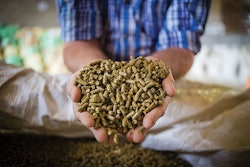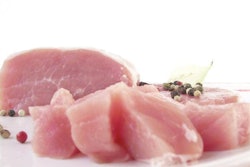Feed additive producer Nutriad, a pioneer in sodium butyrate applications for the animal feed industry, co-financed a research project on the use of butyrate as feed additive. The multi-year research project was concluded with the Ph.D. thesis of Pierre Moquet on the effects of butyrate in broiler diets, which he successfully defended on June 22nd at Wageningen University (Netherlands).
Dr. Moquet started his Ph.D.-research in the Wageningen Animal Nutrition Group (WUR) to investigate an important conundrum related to the use of butyrate as an additive in animal feed: on one hand, this molecule has received considerable attention for its potential to improve intestinal health and animal performance, while on the other hand, the mechanisms underlying these effects have been described as very diverse and seemingly less consistent.
Together with a fellow Ph.D. student at Ghent University, Dr. Moquet set out to explore this topic in the framework of a research project that was co-financed by feed additive producer Nutriad and VLAIO, the Flanders Innovation & Entrepreneurship agency. Dr. Tim Goossens, Business Development Manager Digestive Performance at Nutriad, coordinated support for the project.
Dr. Goossens explained: “Dr. Moquet found evidence supporting his hypothesis that at least part of this variation can be attributed to the fact that different products deliver butyrate in distinct parts of the gastrointestinal tract (GIT). These different release profiles result in specific digestive, microbial and immunological responses.”
For example, when butyrate levels were increased solely in the proximal part of the GIT, or specifically in the small intestine, expression of host defense peptides was modulated and the levels of certain antibodies in the blood was increased. However, these treatments also triggered caecal microbial dysbiosis and inflammatory responses. On the contrary, when additives where used to increase butyrate not only in the proximal GIT, but also the hindgut, no signs of gut inflammation were observed, while the apparent digestibility of methionine was improved, as well as the feed conversion ratio.
“All in all, the data suggest that butyrate indeed has the potential to elicit important gut health stimulating mechanisms”, Dr. Goossens concluded, “but it is not an ‘always beneficial, everywhere’ product. Instead, the importance of precision delivery of this molecule is highlighted once more. This is especially important for butyrate producers if they are to provide practical and smart solutions to animal producers.”













